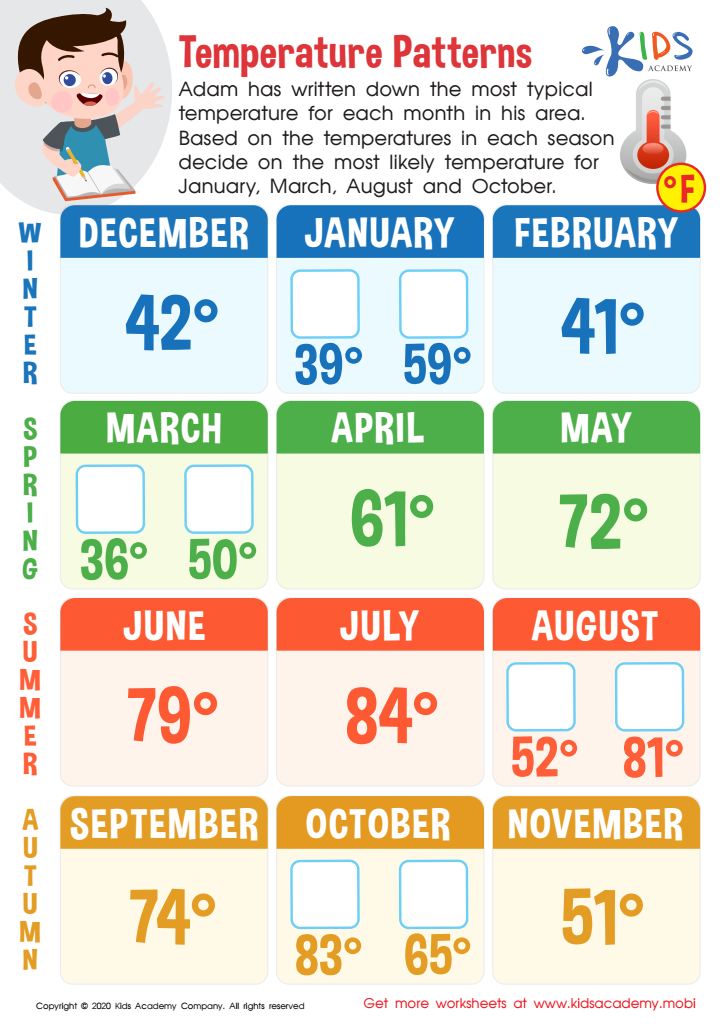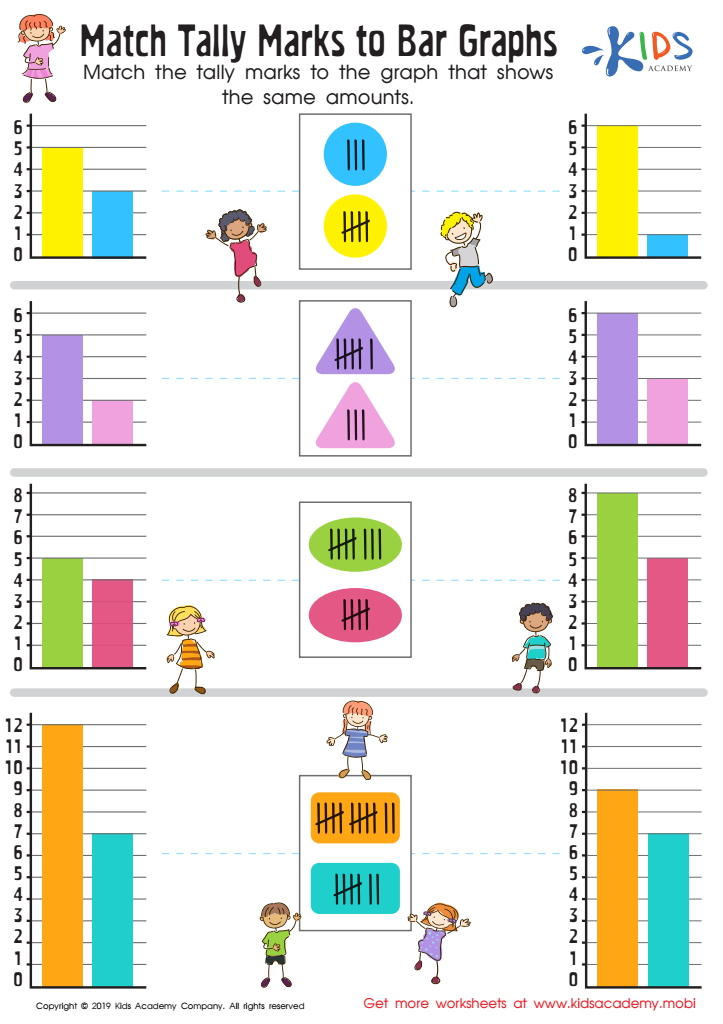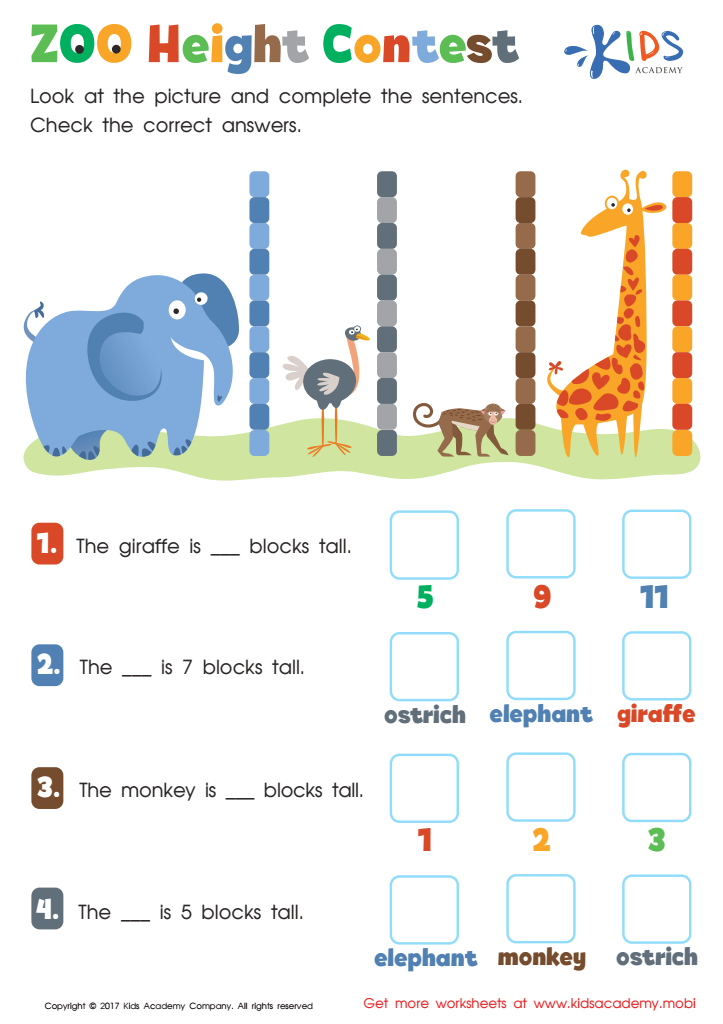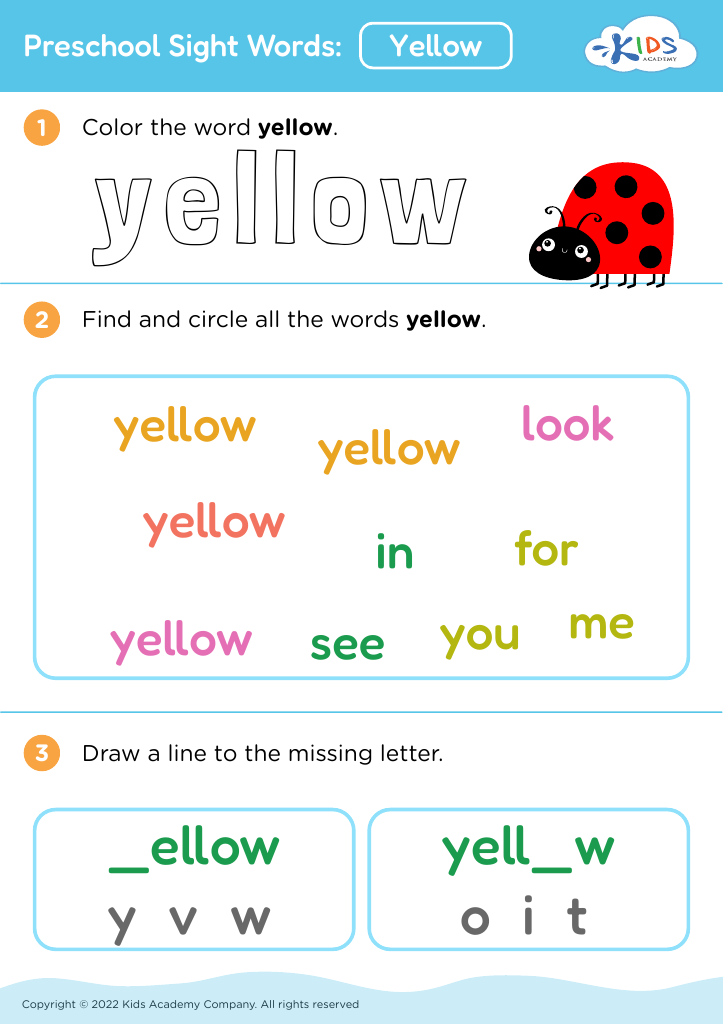Interpreting data Worksheets for Ages 4-6
4 filtered results
-
From - To
Boost your child's critical thinking with our “Interpreting Data Worksheets for Ages 4-6”. Designed to captivate and engage early learners, these worksheets introduce kids to essential data interpretation skills through fun, age-appropriate activities. Kids will learn to analyze simple graphs, charts, and tables, helping them build a solid foundation in understanding and organizing information. Each worksheet is crafted to promote problem-solving, logical thinking, and other vital learning skills. Perfect for educators and parents, these printable resources are a fantastic way to support your child’s academic growth. Start fostering their analytical abilities today!


Temperature Patterns Worksheet


Match Tally Marks to Bar Graphs Worksheet


Zoo Height Contest Worksheet
Parents and teachers should care about helping children aged 4-6 interpret data, as it lays the foundation for essential cognitive and analytical skills. At this developmental stage, children's brains are highly receptive to new information and experiences. Simple activities, such as sorting objects by color or shape, recognizing patterns, or understanding basic charts, can significantly contribute to their problem-solving abilities and logical thinking.
Interpreting data nurtures curiosity and enhances observational skills, which are crucial for fostering a lifelong love of learning. It also helps children develop mathematical literacy, which is vital for their future academic success. Understanding basic concepts of data enables children to comprehend more complex ideas later on, such as estimation, probability, and statistical reasoning.
Moreover, engaging with data interpretation activities can improve children's language and communication skills. When they explain their findings or understand others' perspectives, they practice articulating thoughts clearly and listening attentively. These social skills are essential for effective teamwork and collaboration.
Lastly, in an increasingly data-driven world, early exposure equips children with the confidence and competence to navigate various information systems as they grow. Ultimately, helping young children interpret data promotes critical thinking abilities and sets a strong, versatile educational foundation.
 Assign to My Students
Assign to My Students
















